 The other day, I read that The Metropolitan Museum of Art in New York had freed thousands of images from their intellectual property right shackles for free and unrestricted public use. This is good. And being a dutiful beer blogger, I immediately put in the word “beer” in the search engine to see what would pop up. And this is what popped up. A chunk of dried mud with scratchings. I love stuff like this. Three years ago, I stared at Mesopotamian brewing things at the Royal Ontario Museum, aka the ROM. Somewhere I have photos I took thirty years ago of myself, when a selfie took a tripod, at the British Museum staring at Mesopotamian brewing things made of mud. Scratchings made a person over 150 generations ago. On just a piece of mud.
The other day, I read that The Metropolitan Museum of Art in New York had freed thousands of images from their intellectual property right shackles for free and unrestricted public use. This is good. And being a dutiful beer blogger, I immediately put in the word “beer” in the search engine to see what would pop up. And this is what popped up. A chunk of dried mud with scratchings. I love stuff like this. Three years ago, I stared at Mesopotamian brewing things at the Royal Ontario Museum, aka the ROM. Somewhere I have photos I took thirty years ago of myself, when a selfie took a tripod, at the British Museum staring at Mesopotamian brewing things made of mud. Scratchings made a person over 150 generations ago. On just a piece of mud.
It’s actually more than that. It’s Urra=hubullu, tablet 23 from Mesopotamia in the late 1st millennium B.C. “Twenty-three, eh?” thought I. Being a clever man I realized there must be twenty-two others. So off I went. Or, rather, I put a few words in Google… and found what I am sure you all expected I would find: Cuneiform Texts in the Metropolitan Museum of Art: Literary and scholastic texts of the first millennium B.C. by Ira Spar, Wilfred G. Lambert published by the Metropolitan Museum of Art, 2005 where I learned about what had been scratched into the dried mud thingie over three thousand years ago. Tablet 23 is a vocabulary of food and drink terms. The passage on this piece of cuneiform cites, at page 234, a 1950 article “On Beer and Brewing Techniques in Ancient Mesopotamia According to the XXIIIrd tablet of the series HAR.ra=hubullu” by Oppenhiem and Hartman which describes the content of tablet 23 in the context of brewing.
Fabulous. So fabulous as it is all seemingly quite authoritative. The Spar and Lambert text goes on to state what exactly was written down on three thousand odd years ago in that clay. There is great beer, dark beer, white beer, cloudy beer and beer for the tigi-songs whatever they were. My favourite might be the symbol for “clear/clean beer” indicating, of course, that folk were both skillful and appreciative of skill. That information is all in column 2. In column 3, the words are about process. Yeast is pulverized, barley bread is crushed and spread just right. It is soaked and dried then soaked and mashed. It is rinsed, pressed, crushed, broken and mixed. Malt is dried, watered, opened, spread and warmed. To my mind, this is more than a vocabulary. This is a guide not so very much different from Samuel Child’s 1768 guide discussed the other day.
This is interesting. How is it that I can read a Mesopotamian clay tablet and pretty much immediately understand what is going on? If it was about religion, governance or astronomy I wouldn’t have a clue. But beer and brewing are not strange. They are, in a very meaningful way, constant. You can see that if we go back to column 2 where you see words for 1:1 beer, 2:1 beer, 3:1 beer and even triple beer. The ratio is the relationship of grain input to beer output. If you scroll down to page 238 of the 2005 Spar and Lambert text you see there are footnotes and in the footnotes an explanation of Mesopotamian methodology. I am just going to cut and paste the footnote in relation to column 2, line 11 and what follows as I think it is one of the more extraordinary things I have ever read about beer in a couple of ways:
First, it is extraordinary as it basically sets out the scheme of brewing over 3,000 years ago in a manner which is readily understandable to anyone who has home brewed from an all-grain mash. Second, not only is it understandable… it is very familiar. It looks a lot like the parti-gyle process which makes a lot of sense as no one in their right mind wastes resources. So, the first sparging of the mash gives a 18% sugar solution wort, the second a 6% wort and the third a 1.5% wort. Roughly declining to a third each time. And sometimes the wort is recirculated to strengthen it even more to make what the footnote’s author describes as “very powerful” beer.
What is extraordinary to me is that this ratio looks a heck of a lot like the proper way to brew that I have read about from Piers the Ploughman in England’s 1370s to Matthew Vassar in New York’s 1830s. It reads like the 1825 advert for Thomas Molson’s brewery here in my hometown. Strong ale, single ale and small or ship’s beer with what looks like double double thrown in for good measure, that hazard from Shakespeare to Schenectady.
Which leads to another thought. Is that pattern a constant? Four grades of beer naturally created solely by the relationship between the sparge fluid and mash? Following these rules you will have a 11%-ish beer, a 4%-ish one and a 1.25%-ish one. As well as whatever the heck double double was to create all that toil and trouble. A constant pattern. Could be. Could be.

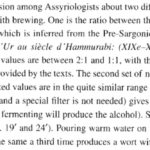
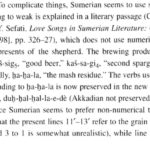
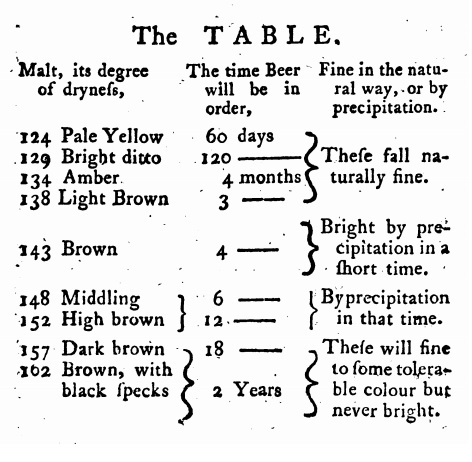
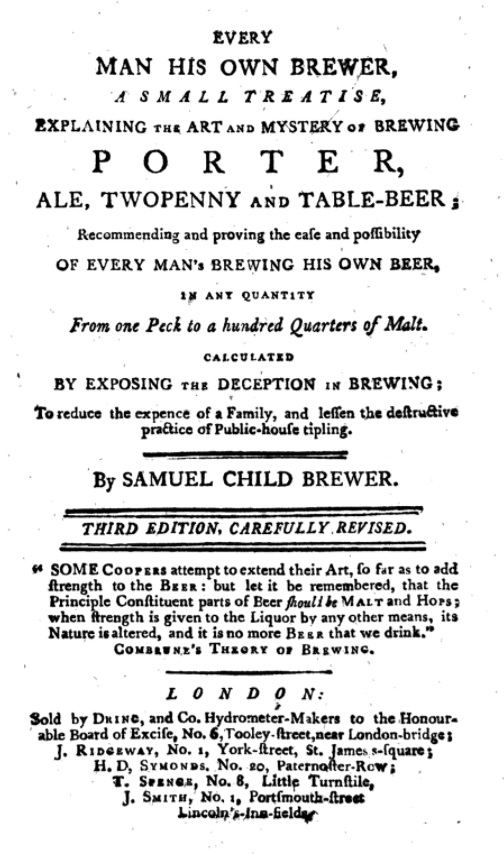
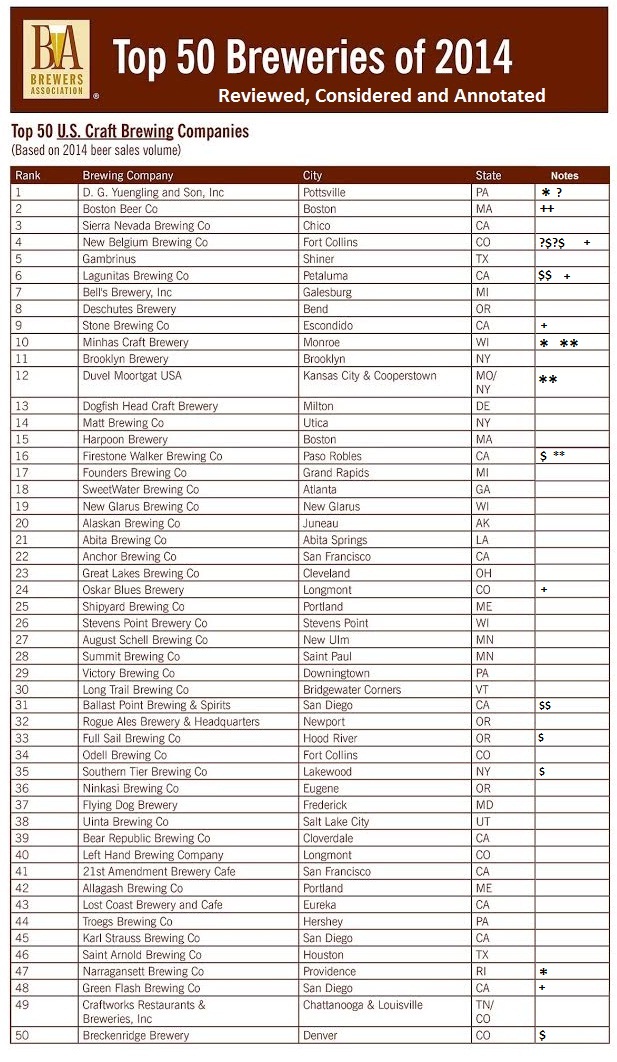
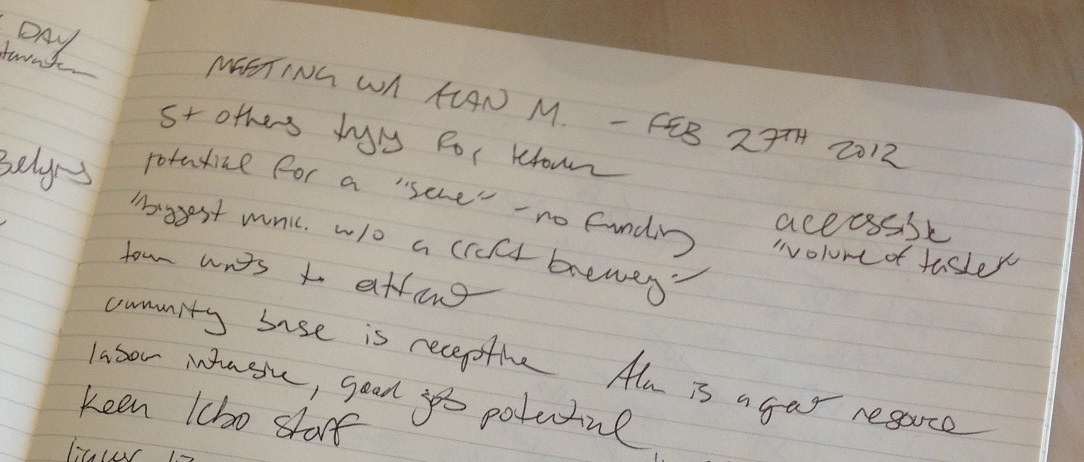
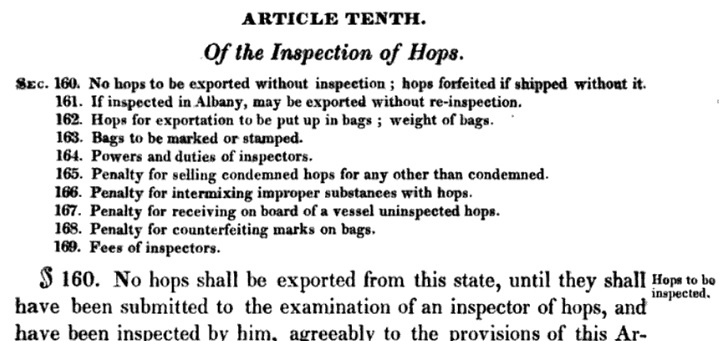
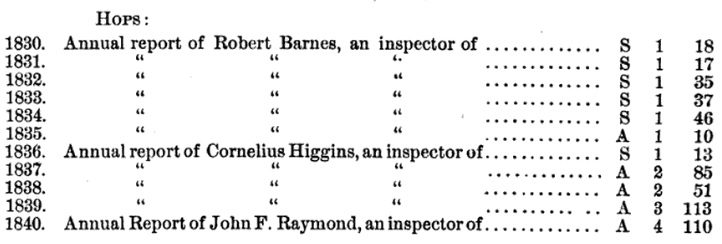

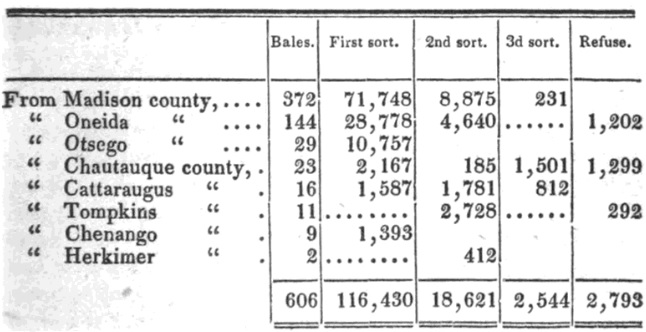
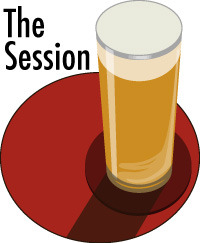 This month’s edition of The Session finds us being asked by
This month’s edition of The Session finds us being asked by  Ah, Mr. Chimphead. A serious point must be about to be made. But being August, there is not much out there to read, not much worth writing about. People rightly have other things to do. But Bryan Roth has posted a
Ah, Mr. Chimphead. A serious point must be about to be made. But being August, there is not much out there to read, not much worth writing about. People rightly have other things to do. But Bryan Roth has posted a